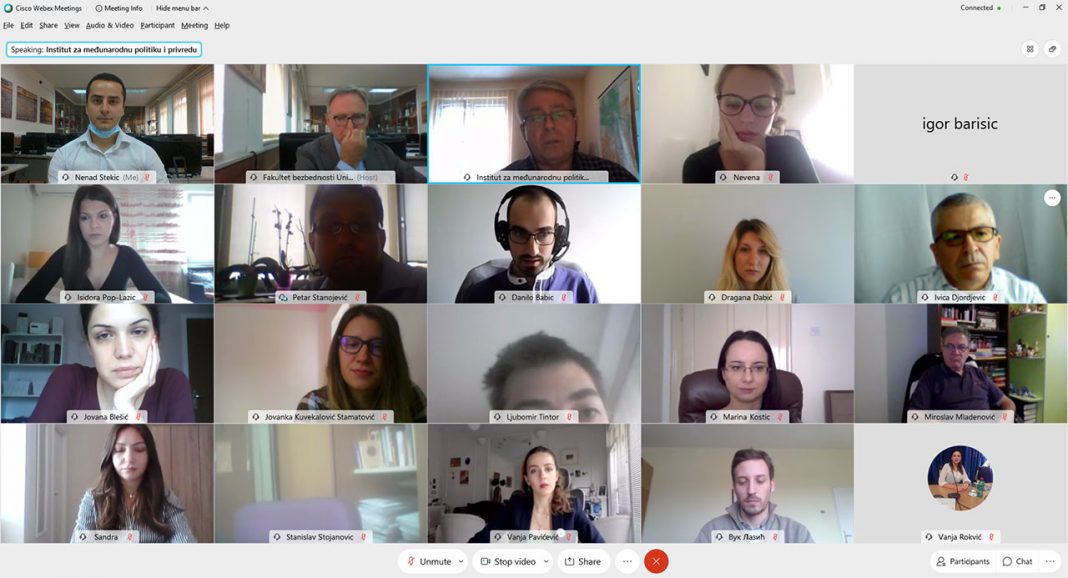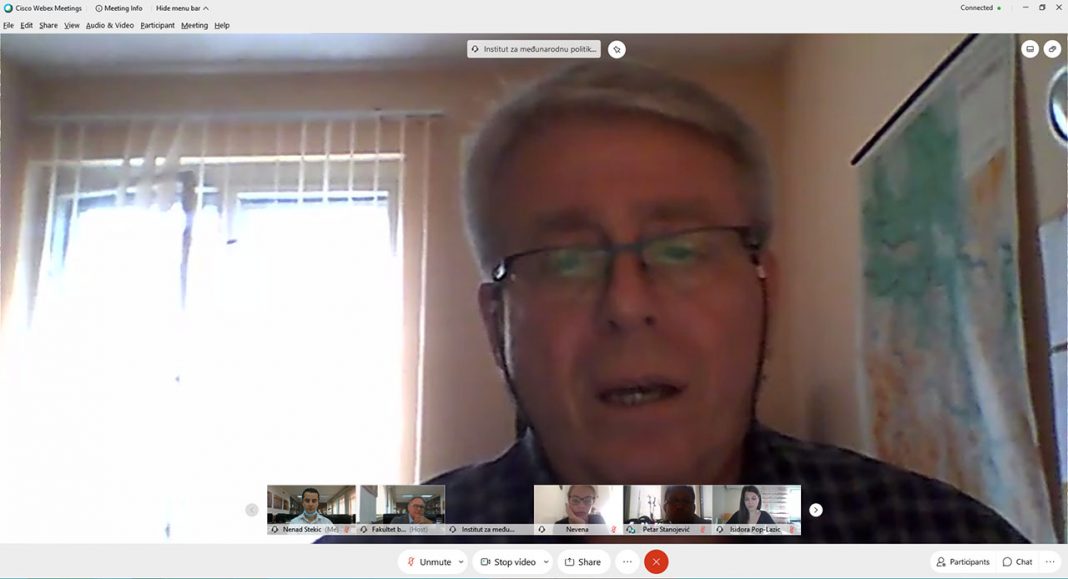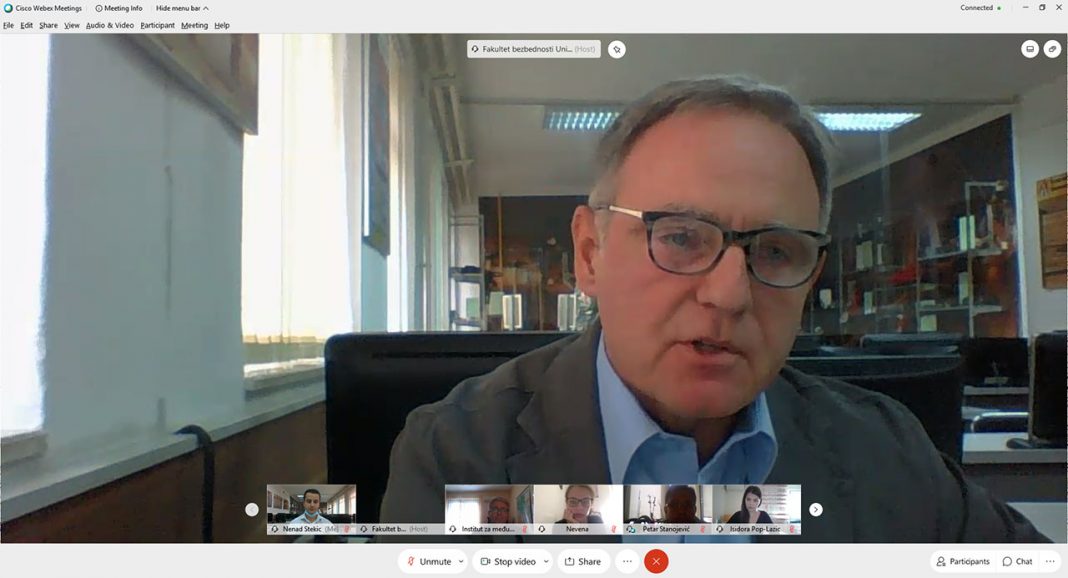Institute of International Politics and Economics (IIPE) along with the University of Belgrade – Faculty of Security Studies, and with the Institute for Strategic Research of the University of Defence, organised the conference “Challenges for the Modern World: Strategic Actions of States or Result of Global and Local Processes and Occasions”. Due to the Coronavirus pandemic the conference was held online and gathered leading domestic academic authors in the field of international relations, security studies, strategic studies, and geopolitics. The conference aimed to contribute to the study, promotion, and development of strategic studies within the academic discourse in the Republic of Serbia, through innovation of study programs, improvement of several thematic sessions on the modern world, the challenges it faces – especially on how countries respond to all these challenges, as well as through methodological procedures for their study and the use of modern software technologies for data processing.
As a part of the opening ceremony, the participants were addressed by Dr Branislav Đorđević, IIPE Director, and Dr Zoran Jeftić, Head of the Department of Strategic and Defence Studies at the Faculty of Security Studies, University of Belgrade. Addressing the audience, Dr Đorđević thanked the partner institutions for the joint organisation of such a gathering, whose goal was to provide answers about the possible functioning of the international community after the pandemic caused by the Corona virus. Speaking about the post-pandemic world, the director of the Institute introduced the year of multiple changes that humanity might face with, as well as numerous economic and political problems caused by reduced mobility of people, goods and capital, general alienation, strengthening the role of nation states and nationalisms around the world. Concluding that the focus of humanity in such extraordinary conditions, is focused on innovation and technological development, Dr Đorđević underlined that the process of globalisation has been significantly disrupted. Dr Zoran Jeftić delivered a keynote speech emphasising the importance of education as a successful prerequisite for the development of Strategic Studies. Speaking about the constantly galloping security paradigm, Professor Jeftić presented the findings of a comprehensive review of study programs on Strategic Studies at major world universities, and stressed the importance of taking the best academic and educational practices in their implementation and creating new study programs in this field in Serbia.
After the introductory speeches, the working part of the conference was split in three thematic panels. In the first panel, presentations were given by Dr Stanislav Stojanović, Institute for Strategic Research of the University of Defence, Dr Petar Stanojević and Dr Ivica Đorđević, both from the Faculty of Security Studies of the University of Belgrade. The speakers discussed about the transformation of armed conflicts, the nature of wars of the 21st Century, the modalities of strategic thinking, as well as the possible connection of related theoretical concepts, such as human security, in raising the level of strategic culture.
The second panel was marked by presentations of Vangel Milkovski MA, Dr Hatidža Beriša, and Dr Milan Miljković, all from the School of National Defence of the University of Defence, Dr Vanja Rokvić from the Faculty of Security Studies of the University of Belgrade, and Nenad Stekić MA, an IIPE Research Associate. Panellists discussed the importance of theoretical aspects of strategic thinking, academic discourse regarding the nature of “new” wars, innovations in military activities as a prerequisite for the strategic efficiency of the nation, as well as about the scope of predicting armed conflicts’ outbreak.
Dr Žarko Obradović and Dr Miroslav Mladenović, Faculty of Security Studies of the University of Belgrade, and Dr Marina Kostić, an IIPE Research Fellow, participated within the very last panel. Speaking about the New START agreement, as well as about the issues such as the political interests of the great powers in the Western Balkans, the panellists agreed that the Republic of Serbia is facing a significant (geo)political crossroads in terms of its future foreign policy.
After a fruitful discussion, it was once again underlined that the intention of this conference and similar initiatives in the future will trace the development of strategic studies as an academic discipline whose study would benefit, in addition to the academic, and the wider professional public.
Papers presented at this conference will be published in a conference proceedings as a joint publication of Institute of International Politics and Economics and Faculty of Security Studies of the University of Belgrade.




